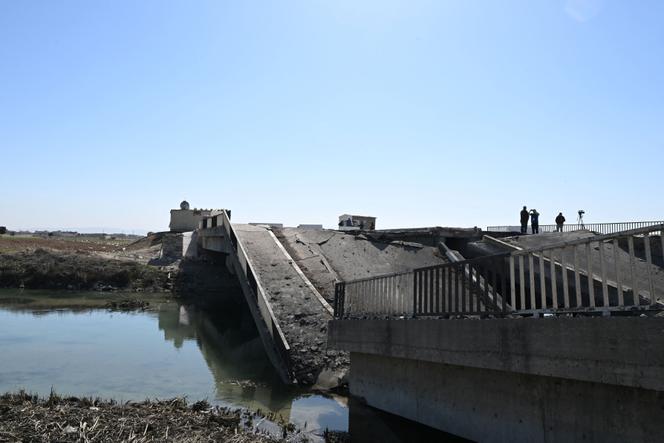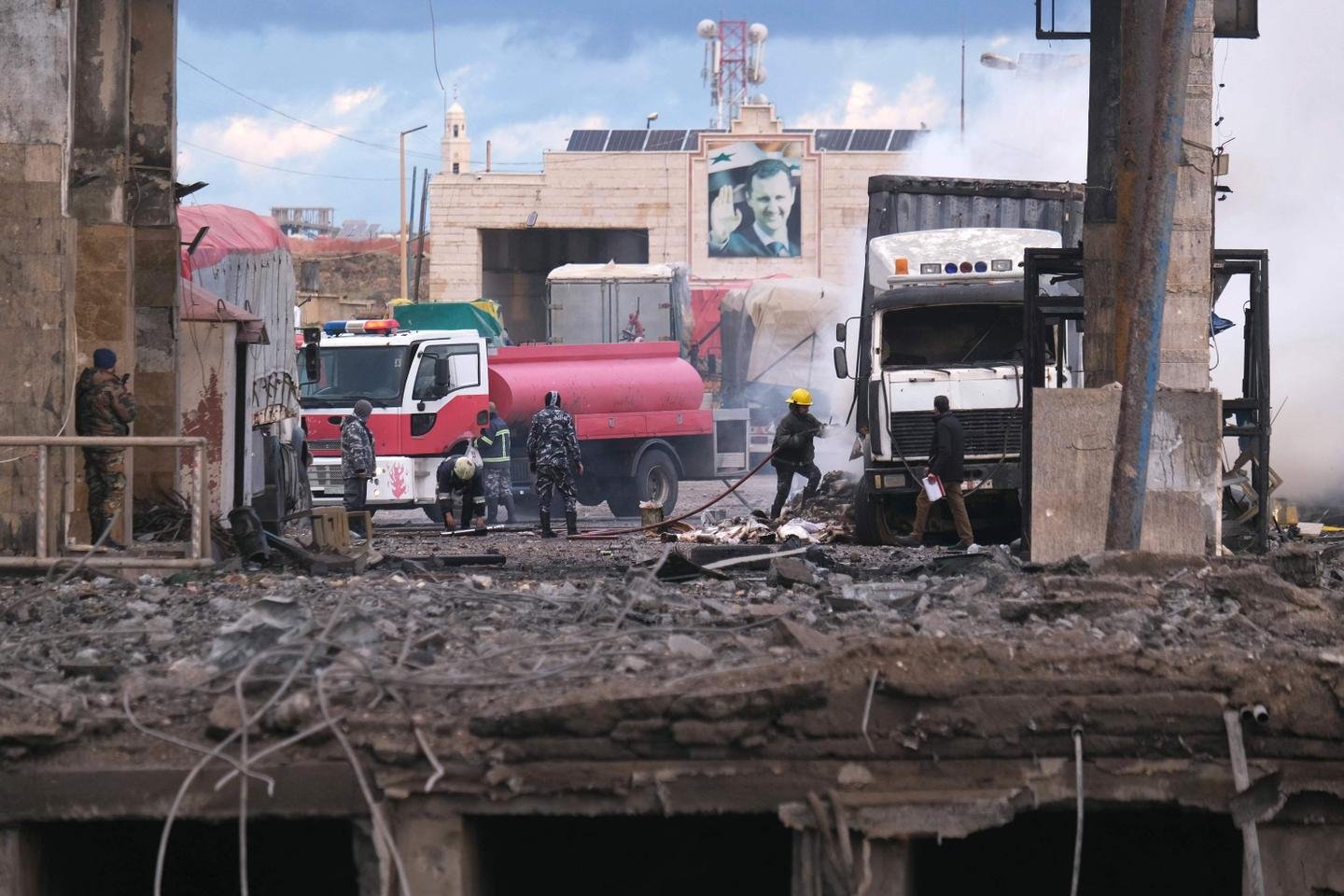News analysis
Jean-Philippe Rémy
Jerusalem correspondent
Hélène Sallon
Beirut (Lebanon) correspondent
For the past two months, Israel has been bombing its neighbor in order to prevent the Shiite party from transporting weapons and reinforcements to its Lebanese strongholds.
Published today at 3:24 pm (Paris) 4 min read Lire en français
Subscribers only

During the two months of the war in Lebanon, Syria became an extension of the front opened by Israel against Hezbollah. The Israeli army intensified its strikes against Hezbollah’s leaders, ammunition warehouses and smuggling routes, in order to prevent it from sending weapons and reinforcements to Lebanon. Syria continues to play a pivotal role in the ceasefire agreement signed between Israel and Lebanon on Wednesday, November 27.
While the Israeli army estimates that it has destroyed around three-quarters of Hezbollah’s stockpile of medium and short-range rockets, as well as a significant proportion of its missiles, the challenge now is to prevent the Shiite group from rebuilding its arsenal, with the help of Iran. Under the terms of the agreement, Lebanon has undertaken to tighten border controls to prevent the entry of illegal weapons. In the event of the Lebanese army failing to meet its obligations, Israel has obtained the right to act from the United States, in a letter of guarantees signed on the sidelines of the agreement.
Hezbollah’s entrenchment in Syria has been a source of concern for the Israelis since the outbreak, in March 2011, of a protest movement that turned into an armed insurrection. President Bashar al-Assad’s power has held out – at the cost of destroying much of his own country – only with the help of his three allies: Iran, Hezbollah and Russia.
‘Offensive surgical strikes’
Anxiously watching the Lebanese armed movement, with logistical support from Iran, develop a platform for moving military equipment and men towards its Lebanese strongholds, Israel has been striking freely at its enemies in Syria ever since. Israeli raids against Hezbollah in Syria went from occasional strikes to a new level after the Shiite party opened a “support front” against Palestinian Hamas on October 8, 2023, the day after the deadly October 7 attack.
The Syrian Observatory for Human Rights (OSDH) has recorded 150 Israeli strikes in Syria since January 2024. Over the past year, many high-ranking Hezbollah and Iranian Revolutionary Guard officials have been killed by Israel on Syrian territory. At the end of September, during the transition to open warfare in Lebanon, strikes in Syria increased again. “There were many more convoys circulating in Syria, transporting weapons to Lebanon. These were all targets, to cut off supplies. This is not going to end with the ceasefire, although there will no doubt be a drop in intensity,” said a diplomatic source.
You have 62.72% of this article left to read. The rest is for subscribers only.
Vous pouvez lire Le Monde sur un seul appareil à la fois
Ce message s’affichera sur l’autre appareil.
-
Parce qu’une autre personne (ou vous) est en train de lire Le Monde avec ce compte sur un autre appareil.
Vous ne pouvez lire Le Monde que sur un seul appareil à la fois (ordinateur, téléphone ou tablette).
-
Comment ne plus voir ce message ?
En cliquant sur « » et en vous assurant que vous êtes la seule personne à consulter Le Monde avec ce compte.
-
Que se passera-t-il si vous continuez à lire ici ?
Ce message s’affichera sur l’autre appareil. Ce dernier restera connecté avec ce compte.
-
Y a-t-il d’autres limites ?
Non. Vous pouvez vous connecter avec votre compte sur autant d’appareils que vous le souhaitez, mais en les utilisant à des moments différents.
-
Vous ignorez qui est l’autre personne ?
Nous vous conseillons de modifier votre mot de passe.
Lecture restreinte
Votre abonnement n’autorise pas la lecture de cet article
Pour plus d’informations, merci de contacter notre service commercial.
